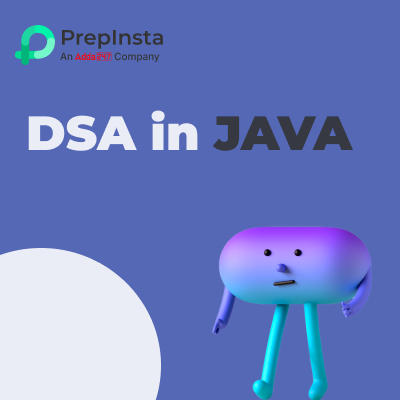- Teaching Maha Pack
- KVS TGT
- KVS PGT
- CTET
- NVS TGT
- NVS PGT
- Bihar Shikshak Bharti TRE 1 to 5
- Bihar Shikshak Bharti TRE 6 to 8
- Bihar Shikshak Bharti TRE 9 to 10
- Bihar Shikshak Bharti TRE 11 to 12
- DSSSB TGT
- EMRS TGT
- EMRS PGT
- UP LT GRADE
- UP LT GRADE Pre and Mains
- EMRS
- HTET
- KVS
- NVS Non Teaching
- DSSSB
- DSSSB PRT
- UP GIC Lecturer
- NVS
- KVS PRT
- KVS Non Teaching
- NVS PRT
- Bihar STET 9 to 10
- Bihar STET 11 to 12
- Bihar Librarian Science
- Jharkhand Madhyamik Teacher
- DSSSB PGT
- Bihar B Ed
- HSSC TGT
- Jharkhand PGT
- MPESB PGT
- Bihar TET
- Librarian
- EMRS Non Teaching
- Chhattisgarh Teaching
- UP BEd
- TET ADDA
- Army Public School
- Bihar Special School Teacher
- BSSTET
- CG VYAPAM
- Bihar STET
- Super TET
- State TETs
- UP Lecturer
- B.Ed
- HPTET
- CTET Paper-II (Social Science)
- BPSC TRE (6-8)
- BPSC TRE (9-10)
- BPSC TRE (11-12)
- Bihar STET Paper I
- Bihar STET Paper II
- HPSC PGT
- MP TET
- RPSC Grade 1
- Bihar Deled
- REET
- RRB Railway Teacher
- BPSC
- DSSSB Non Teaching
- RPSC Grade 2 Teacher
- PGT Foundation
- TGT Foundation
- WB SLST 11 to 12
- UPTET
- AWES PRT
- RPSC
- UP PGT
- UP TGT
- Teaching Books
- Free Webinar
- JSSC Special Teacher
- WB TET
DSA in JAVA Complete Video Course
Valid for 12 MONTH
- Get Access To The Top Expert Faculties Of India For Best PreparationExpert Faculties
- Get Access To Carefully Curated High-quality Content For Best ClarityHigh-quality Video Material
- Learn Anytime, Anywhere, And At Your Own Pace With Adda's VideosSelf Paced Learning
- Learn Across Devices, Compatible With Mobile, Tabs, And DesktopsDevice Compatibility
- Access to Carefully Curated Lectures by Top Faculty
- High Quality Videos with Quality change & Playback Speed facility
- Doubt Solving on App, Telegram Groups & In Person at offline Centers
- Seminar & Topper Talks at Offline Centers
- In-Person Counseling, Physical Support Helpdesk at Offline Centers
 Coding and DSA
Coding and DSA
This Course Includes
156 Videos
Overview
Adda Prime's DSA in Java Course is crafted to equip students with a comprehensive understanding of Data Structures and Algorithms (DSA) in Java, a language commonly featured in placement exams and coding rounds. This course covers foundational to advanced topics, guiding students through the structure and logic necessary to tackle diverse problem sets, with a focus on algorithmic thinking, efficient data handling, and problem-solving skills.
Mastering DSA with Java: Learn essential Java concepts and explore the power of data structures and algorithms, widely used by top companies. This course highlights Java’s robustness and versatility, enabling you to develop optimized solutions, manage complex data structures, and implement efficient algorithms.
Focus on Key DSA Areas: The course emphasizes critical aspects of DSA, offering strategies to excel in coding challenges. Topics include core algorithms, data management techniques, and performance optimization, which are vital for success in technical interviews.
Adda & PrepInsta Collaboration: As part of the PrepInsta Prime series, this course is available under Adda, delivering high-quality DSA training that aligns with industry standards and prepares students for real-world applications.
This targeted course is ideal for students aiming to strengthen their DSA skills in Java, boosting their proficiency and enhancing their prospects in coding rounds and placement interviews.
This Package Includes
1. Comprehensive coverage of fundamental Data Structures and Algorithms (DSA) concepts, focusing on Java’s syntax, logic-building skills, and its robust data handling capabilities.
2. Detailed exploration of key DSA topics like recursion, sorting, and searching algorithms, equipping students with essential skills for efficient Java programming.
3. Emphasis on understanding core DSA principles, such as arrays, linked lists, stacks, queues, and trees, which form the foundation of most Java coding challenges.
4. In-depth analysis of common DSA problems, teaching students how to leverage Java’s extensive libraries and collections framework to implement efficient solutions.
5. Simulation of coding rounds in placement processes, providing practical preparation for technical roles that require proficiency in Java, especially in software development and system design.
6. Focus on algorithmic thinking and problem-solving techniques, guiding students in approaching tasks effectively while harnessing Java’s performance and versatility.
7. Insights into best practices for Java development, enabling students to write clean, readable, and maintainable Java code that adheres to industry standards.
Video Uploading Plan
Check the Video Uploading Plan here
Subjects Covered
- Time Complexity
- Recursion for DSA
- Searching and Sorting
- Stacks
- Queues
- Linked List
- Trees
- Binary Search Tree
- Hashin
- Graphs
Exam Pattern
- In Product Companies like Apple, Facebook, Netflix the companies ask 3-4 Coding questions which are based on DSA





 156
156





